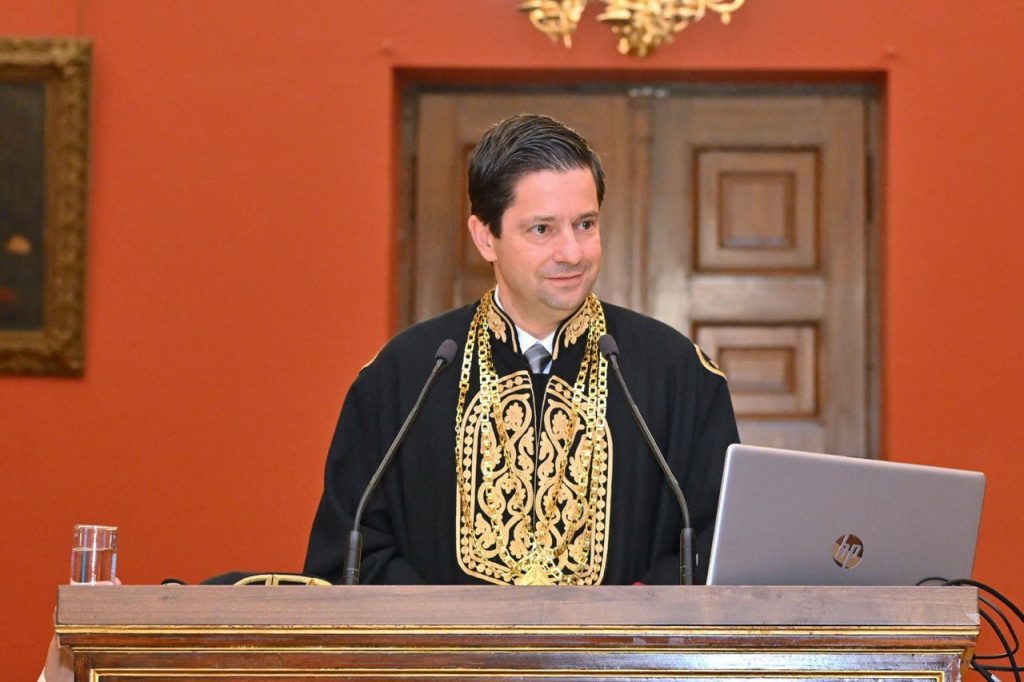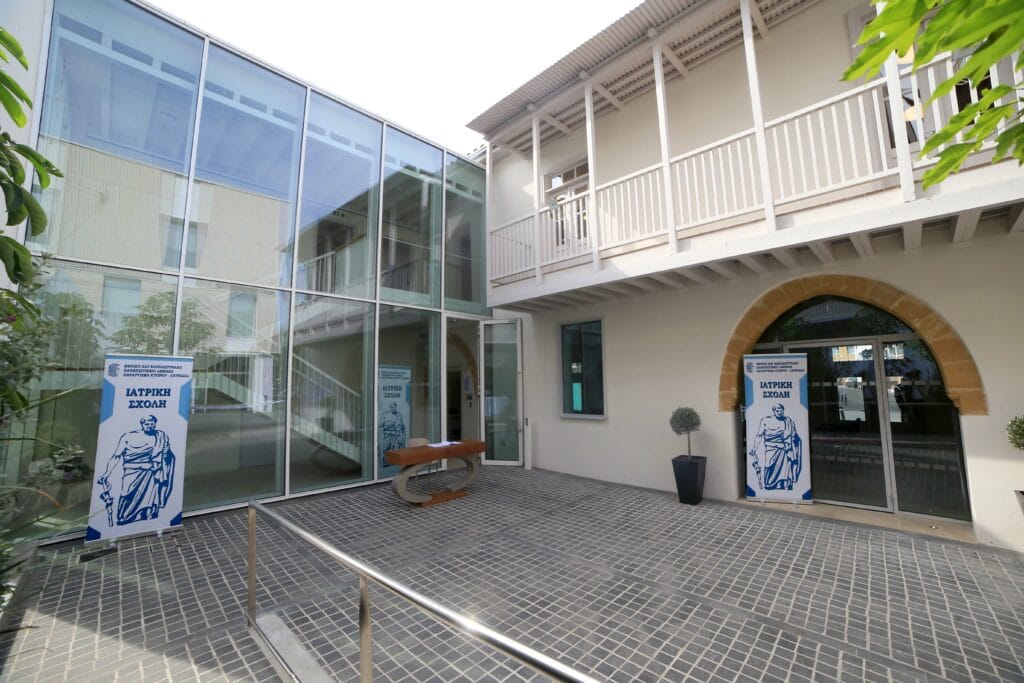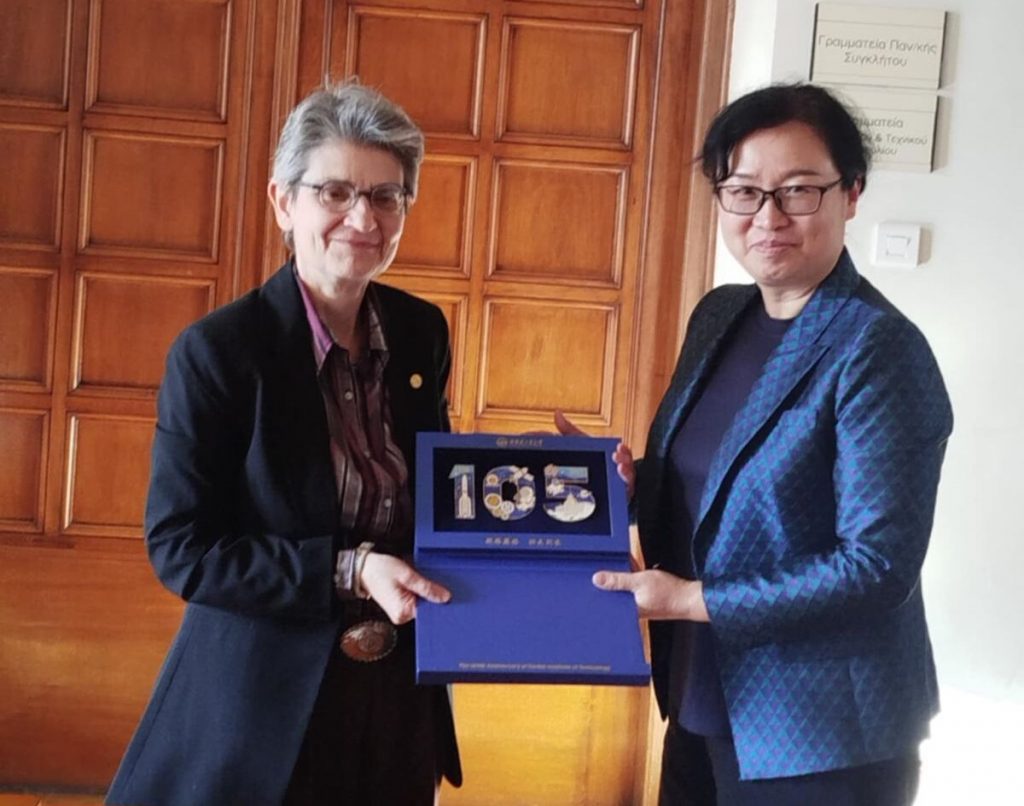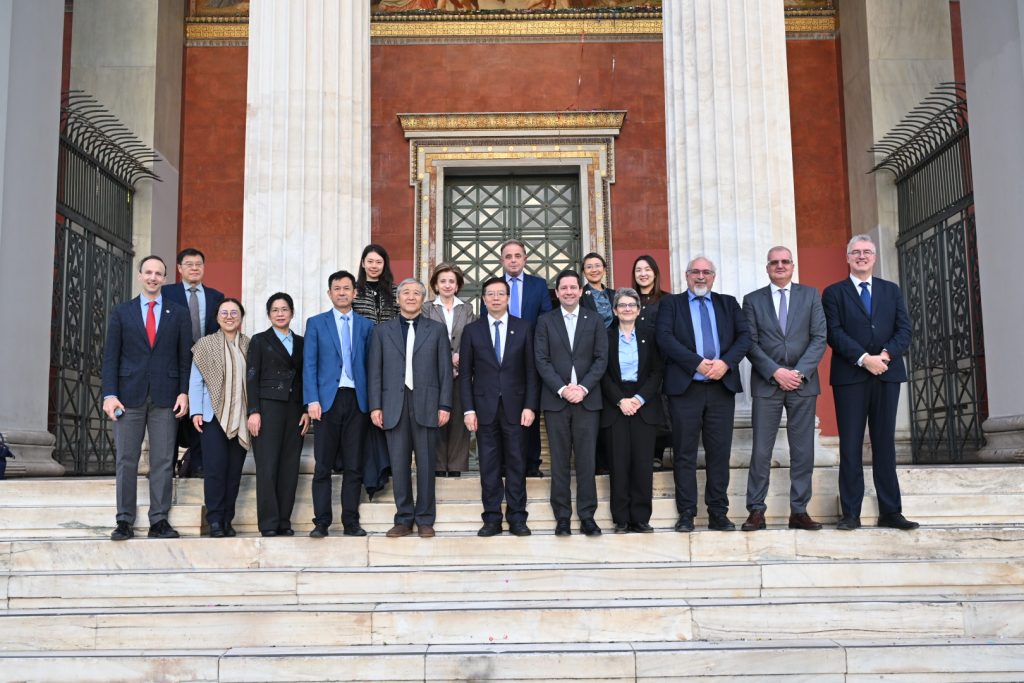ShanghaiRanking’s Academic Ranking of World Universities

ShanghaiRanking Consultancy, a fully independent, non-profit organization, has recently announced the results of the Academic Ranking of World Universities (ARWU – also known as ‘The Shanghai Ranking’) for 2023. According to the results, one Greek University places among the top 400, and another five among the best 1,000 in the world. Once again, it is the National and Kapodistrian University of Athens that achieves the top national ranking (finishing in the world’s 301-400 bracket), followed by Aristotle University of Thessaloniki (501-600), the University of Crete, and the University of Patras (both in the 701-800 bracket). The National Technical University of Athens and the University of Thessaly (both in the 801-900 bracket) round out the top 6 nationwide (see Table 1).
The Shanghai Ranking is one of the three most significant world University rankings. It considers every University that boasts Nobel laureates or recipients of other internationally recognized prizes and awards among its graduates and faculty members, highly cited researchers, and papers published in Nature and Science. The tables also list Universities with many papers indexed by Science Citation Index-Expanded (SCIE) and Social Sciences Citation Index (SSCI).
From its inception in 2003 and through to 2018, ARWU ranked over 2,000 Universities annually to publish the best 500. Since 2019 it has been ranking more than 2,500 Universities each year to publish the highest-scoring 1,000.
ARWU ranks Universities by six (6) academic or research performance indicators. For each of those, the highest-scoring Institution receives a score of 100, while the scores of other Universities appear as a percentage of the top score. The indicators and their respective weights are as follows:
1. Alumni indicator (10%): The number of graduates of an Institution winning Nobel Prizes and Fields Medals,
2. Award indicator (20%): The number of faculty members of an Institution winning Nobel Prizes and Fields Medals,
3. HiCi indicator (20%): The number of faculty members of an Institution included in highly cited researchers’ lists,
4. Ν&S indicator (20%): The number of papers of an Institution published in Nature and Science between 2018 and 2022,
5. PUB indicator (20%): The number of papers of an Institution indexed by SCIE and SSCI, and
6. PCP indicator (10%): The Institution’s normalized per capita academic performance, calculated by dividing the weighted scores of the five indicators listed above by the total number of faculty members.
We should highlight here that the presence of the National and Kapodistrian University of Athens, and the other five Greek Universities, in the Shanghai Ranking is indeed a great success. In this ranking, 30% of the overall score of an Institution derives from the number of its graduates and faculty members who have received the Nobel Prize or the Fields Medal in mathematics, with other notable awards, medals, and personal honours staying under the radar. As a result, the score for Greek Universities in these criteria every year is zero.
The following information supports the positive image painted by the performance of Greek Universities, particularly that of the National and Kapodistrian University of Athens, in the Shanghai Ranking: According to Dr Isidro Aguillo, Head of the Cybermetrics Lab, there are 31,097 Universities worldwide. Most University rankings collect and process data for this number of Institutions. Using specific and predefined criteria, they score indicators and generate the overall rating of each University. They then select the top 500 or 1,000 Universities to compile the final table. Based on the above indisputable facts, the National and Kapodistrian University of Athens, which places in the 301-400 bracket of the Shanghai Ranking 2023, is practically and by reduction in the top 1.3% of Universities worldwide. When we compare the rankings of the other five Greek Universities, we find Aristotle University of Thessaloniki in the top 1.9%, the University of Crete and the University of Patras in the top 2.25%, and the National Technical University of Athens and the University of Thessaly in the top 2.9%. Basically, and given the circumstances, such results are a great success for Greek Universities.
Table 1: Greek Universities’ world rank, national rank, and performance over the individual indicators according to the Shanghai Ranking (ARWU 2023)
| Institution | World Rank 2023 | National Rank 2023 | Alumni | Award | HiCi | N&S | PUB | PCP |
| National and Kapodistrian University of Athens | 301-400 | 1 | 0.0 | 0.0 | 11.4 | 7.7 | 36.9 | 17.0 |
| Aristotle University of Thessaloniki | 501-600 | 2 | 0.0 | 0.0 | 6.6 | 3.5 | 33.1 | 14.6 |
| University of Crete | 701-800 | 3-4 | 0.0 | 0.0 | 6.6 | 8.0 | 19.9 | 9.6 |
| University of Patras | 701-800 | 3-4 | 0.0 | 0.0 | 6.6 | 3.5 | 23.3 | 10.5 |
| National Technical University of Athens | 801-900 | 5-6 | 0.0 | 0.0 | 6.6 | 1.4 | 22.0 | 9.9 |
| University of Thessaly | 801-900 | 5-6 | 0.0 | 0.0 | 6.6 | 3.2 | 21.8 | 9.9 |
Table 2: NKUA’s performance over the individual indicators of ARWU for 2016-2023
| No. | Indicators | Definition & weight of indicators | 2023 | 2022 | 2021 | 2020 | 2019 | 2018 | 2017 | 2016 |
| 1. | Quality of education(Alumni) | The number of graduates of an Institution winning Nobel Prizes and Fields Medals (10%) | 0.0 | 0.0 | 0.0 | 0.0 | 0.0 | 0.0 | 0.0 | 0.0 |
| 2. | Quality of faculty(Award) | The number of faculty members of an Institution winning Nobel Prizes and Fields Medals (20%) | 0.0 | 0.0 | 0.0 | 0.0 | 0.0 | 0.0 | 0.0 | 0.0 |
| 3. | Quality of faculty(HiCi) | The number of faculty members of an Institution included in highly cited researchers’ lists (20%) | 11.4 | 15.3 | 14.6 | 9.9 | 10.4 | 13.5 | 15.4 | 14.5 |
| 4. | Research output(N&S) | The number of papers of an Institution published in Nature and Science (20%) | 7.7 | 6.5 | 5.8 | 6.0 | 5.5 | 5.1 | 4.9 | 5.4 |
| 5. | Research output(PUB) | The number of papers of an Institution indexed by SCIE and SSCI (20%) | 36.9 | 40.6 | 39.5 | 38.6 | 38.0 | 38.3 | 37.0 | 37.4 |
| 6. | Per capita performance(PCP) | The Institution’s normalized per capita academic performance, calculated by dividing the weighted scores of the five indicators listed above by the total number of faculty members (10%) | 17.0 | 18.3 | 16.9 | 15.9 | 19.3 | 20.0 | 20.1 | 20.0 |
American Universities dominate ARWU 2023, with 8 Universities ranking in the top 10, 38 in the top 100, 120 in the top 500, and 187 in the top 1,000. China comes in second with 214 Universities ranking in the top 1,000, 98 in the top 500, and 11 in the top 100. The United Kingdom has 64 Universities among the top 1,000, with 38 ranking in the top 500, 8 in the top 100, and 2 Universities in the top 10 worldwide. Source: ARWU Web page
Harvard University tops the ranking list for the 21st year, followed by Stanford. MIT rounds out the top 3, while in 4th place appears the first Institution that is not American but European, the University of Cambridge in the United Kingdom. Other top 10 Universities are the University of California, Berkeley (5th), Princeton University (6th), the University of Oxford (7th), Columbia University (8th), the California Institute of Technology (9th), and the University of Chicago (10th).
The first European but not British University in the top 20 is the newly established Paris-Saclay University (France – 15th place worldwide), followed by ETH Zurich (Switzerland) in the 20th place. Tsinghua University (China – 22nd place) and the University of Tokyo (Japan – 27th place) rank respectively first and second among other Asian Universities. In Oceania, the University of Melbourne (35th place) outperforms all other Universities in Australia and New Zealand. Across the African continent, the highest-ranking Institution is the University of Cape Town in South Africa, which places in the 201-300 bracket worldwide.
A significant element that emerges from our University’s results in the Shanghai Ranking over time is its high research performance, which shows in the scores of individual indicators from 2016 to 2023 (see Table 2).
We warmly congratulate all members of our University’s academic staff on their commitment to producing research work of high quality and impact; their contribution to our Institution’s international acclaim and extroversion is substantial, and it is one of the most crucial pillars for the further development and evolution of the National and Kapodistrian University of Athens.
Thanos Dimopoulos
Rector of NKUA
















